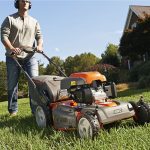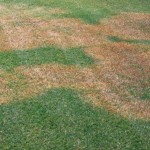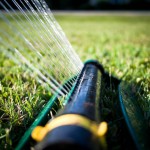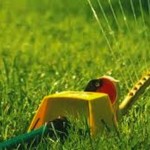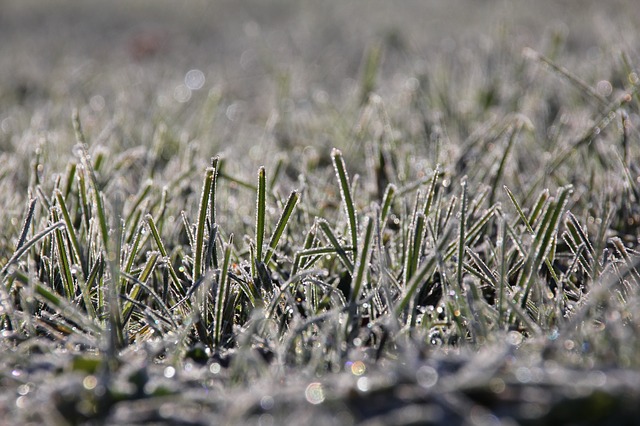
First, let’s get to know your grass!
The majority of Charlotte grass breaks down like this: Tall Fescue makes up 80% of the lawns in Charlotte. 15% are Bermuda while Zoysia, Bluegrass, Ryegrass and Centipede make up the other 5%.
Bored already? Get Charlotte, NC lawn service in seconds with LawnStarter.

Tall Fescue is considered a cool season grass and performs best in the cooler temperatures of spring and fall. During the spring and fall, fescue lawns standout with rich green color and are very attractive. It has a clump type growth habit which means it has limited spreading ability. The only way to repair a damaged fescue lawn is reseed it. Re-seeding or over-seeding can only be done successfully in the fall and requires aeration and consistent watering for 21 days.

Bermuda is considered a warm season turf and performs best in the warmer weather we experience in the summer months. When the Fescue is brown in the summer, Bermuda is at its best with great color and texture. It does require irrigation in the summer, but 1/3 that of Fescue. Bermuda is considered a self-repairing, spread type growth grass. It has underground spreading roots call rhizomes and surface spreading roots called stolons. It does not require seeding for damaged areas, but its aggressive growth results in additional edging and bed weeding. Bermuda is relatively disease free. Bermuda performs poorly in the shade. The biggest drawback for Bermuda is the fact that it goes dormant and turns completely brown after the first frost and doesn’t green-up until mid April.
So when should I winterize?
What is a Winterizer?
Your lawn’s nutrient needs change in the fall in preparation for the cold weather ahead. Winterizing fertilizers are high in potassium (chemical symbol: K), the third number listed on the fertilizer label.
Potassium is a very important nutrient in overall plant health. It works at the cellular level to strengthen and harden plants from top to bottom, making them more tolerant of cold and stress. Potassium also helps a plant absorb other nutrients, making it an important component of balanced feeding for your lawn.
The other two nutrients in fertilizer are nitrogen, the first number (chemical symbol: N), which promotes leaf and stem growth; and phosphorus, the middle number (chemical symbol: P), to enhance root growth and fruit production.
Winterizers Are for Cool-Season Grasses
Most commercial winterizers are formulated for cool-season grasses such as fescue and bluegrass. These type of lawns:
- Have their peak growing season in the fall, so that’s a great time to feed them.
- Need increased potassium and decreased nitrogen as the season progresses.
Some lawn care professionals believe that a fall application of winterizer is the single most beneficial thing you can do for cool-season lawns, and the best choice if you’re only fertilizing once. Among the main commercial fertilizers, winterizers are more balanced than turf-builders, so they’re a better choice for once-a-year feeding.
Warm-Season Grasses Beware
Winterizers should not be used with warm-season grasses (Bermuda, St. Augustine, zoysia, centipede) because they:
- Go dormant in the winter while an application of fertilizer spurs new growth.
- Grow in warmer climates where winterizing is less of an issue.
- While warm-season grasses need potassium, it should be applied during spring and summer instead of fall.
Do I Need to Winterize My Lawn?
- Conduct a soil test. If it shows adequate levels of potassium in your soil, you don’t need winterizer.
- If you’ve been feeding your lawn with balanced nutrients all season (such as organic fertilizer or compost), you shouldn’t need to worry about winterizing, as there will still be plenty of potassium available in the soil during fall.
- Cool-season grass will benefit from fall feeding. You can use a winterizer or another fertilizer as long as it contains both nitrogen and potassium. Or supplement your lawn throughout the season with potassium from organic sources.
- For warm-season grasses, wait until late spring to fertilize and feed with balanced nutrients.
Looking for lawn care? Book local Charlotte lawn care experts in minutes with LawnStarter!



